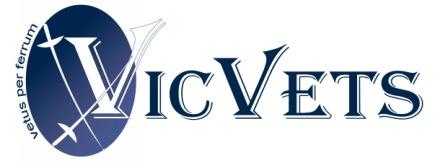Australian National Champions 2014 – The Sword Fighter Dozen
Following the tradition of the National Open Champion questionnaire, the 6 2014 Open Champions kindly contributed some answers following their Championship win.
Australian 2014 National Champion: Claire Daniel – Womens Foil Champion.
1: How long have you been Fencing? What made you start? How long did it take for you to feel competent?
A: Fencing was something I wanted to do ever since taking up the violin in primary school. I would play games which involved using the bow to poke my friends in orchestra, this being the upside to not making it to the first desk. I did not realise it was possible to learn fencing in Brisbane until I went to high school in 2003 where it was offered as an afterschool sport. In the first few years I don’t ever remember worrying much about whether I was competent or not, I just enjoyed it.
2: How long have you been Competing at National / International level?
A: My first national competition was the Australian U/15 Championships in 2005. My first international competition was the Junior Commonwealth Championships in Malaysia in 2009.
3: What made you choose your weapon? Have you fenced the other 2?
A: Foil was the weapon we learnt at school and I stuck with it. There were many more girls fencing foil than were fencing sabre or epee in Queensland at the time so state competitions in foil were much more fun. I have fenced the other two for fun at the occasional competition, in particular University games.
4: Where is your favourite place to fence or to train?
A: I very much enjoyed training in Pisa but I have not yet had an opportunity to return. Otherwise a club night in Brisbane when all the foilists come out and we can set up lots of pistes is just fine.
5: How important have a coach and training partners been to you?
A: Good training partners are essential and I improve much more quickly when I can train with someone who forces me to change how I fence in order to win points. The relatively small number of experienced training partners in Brisbane and also across Australia in women’s foil is currently a challenge. My coach has also been very important.
6: What are your future ambitions for 2015 and beyond? work / training / competition?
A: I have been fortunate to win a John Monash Scholarship and with this I am intending to study a master’s course at University College London starting September 2015. The course looks at digital data or ‘big data’ analysis and its applications to town planning. I am also looking forward to the opportunity to access more training partners and a greater variety of competitions that living in London for a year will bring. Around preparation for this I will continue working and training in Brisbane.
7: Who if anyone have you modelled your fencing on? Or do you have a favourite Fencer (Internationally)?
A: I have modelled my fencing from the input of different coaches I have had rather than an individual fencer. My favourite fencer for many years has been Nam Hyun-Hee of Korea. I also enjoy watching Elisa Di Francisca of Italy and Inna Deriglazova of Russia.
8: What if any other sports do you play/train?
A: I do not currently play any other sports. I sprint, lift weights and do various other exercises to improve my fitness for fencing.
9: What difference if any did this national event have to others?
A: It was the first national competition for more than five years that my friend Katie also competed in and it is great to have her back.
10: What is your weekly training Regime?
A: I train as much as I can fit in around work. This typically involves two squad sessions and two club sessions a week (which is about all there is available in Brisbane anyway), and three or four separate fitness sessions around that.
11: What advice would you give future Australian champions?
A: It is not easy to balance full time work with training and competing nationally and internationally. Fencing at any level in Australia, but especially the level required to win national championships let alone compete at international competitions, requires a huge investment in finances, time and emotion. This can be heavy, especially on nights you are tired from work and failing to fence as well as you think you should. It is easy to get upset and frustrated.
At times like this it helped me to talk to my coach and other athletes who had similar experiences. With the onset of frustration it helped to go back to the simple things that I could still do well and enjoy in order to build confidence before attempting to deal with the more complicated situation again. On nights it was really bad it helped to accept that it was okay to take time out.
12: What is the best / worst thing about Fencing in Australia?
A: The best thing about fencing in Australia is the great attitude towards training and the passion Australian fencers have for their sport in general, as non-professional athletes we are almost all here because we love it. The worst thing about fencing in Australia is, as always, the long distances to travel and the isolation from the rest of the world.
Thanks so much Claire..



